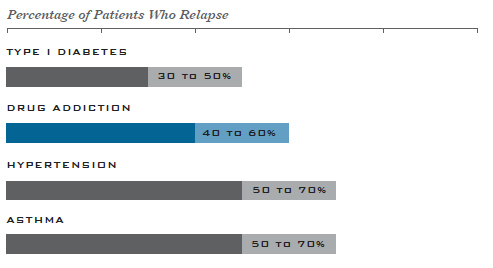Any chronic, progressive disease such as diabetes or hypertension requires treatment, monitoring and often a change in lifestyle. Addiction treatment addresses the root causes of dependency: psychological, environmental, biological, emotional, mental, and spiritual. A quality comprehensive, addiction treatment program will provide an individual suffering from addiction with education, challenges, therapeutic and peer support. Clients can then have the safety to be reflective, explore the concept of taking responsibility, gain knowledge about addiction, relapse, triggers, mental health management, medication management and other life skills. Each component of addiction treatment helps build a foundation on which an individual suffering from addiction can successfully rebuild his or her life and become a healthy, productive member of the community.
Liberation Way provides quality, comprehensive, individualized care based on thorough medical, psychological and social evaluations. Together these assessments determine a client’s treatment plan.

Short-term treatment without in depth, personal work is doomed to failure. Like diabetes, a person suffering from addiction must thoroughly understand his or her disease, receive check-ups and alter the treatment when a relapse occurs. In fact, the rate of relapse for a diabetic is similar to that of someone suffering from addiction.
Mental Health is Part of Addiction Treatment
Research has revealed that people who suffer from addictions also suffer from one or more mental health conditions: depression, anxiety, social phobias, bipolar disorder, and others. Often, people may also suffer from physical ailments that add to the mental health and addiction problem. In the past, mental health issues and addiction were considered separate. The truth is that they are interconnected. One condition profoundly impacts the other. Today’s body of science illustrates that the two conditions must be addressed simultaneously, or a worsening of one or both of the conditions will occur.
Simultaneous treatment for mental health and addictions works. Indeed, research has also demonstrated that the longer one stays in addiction treatment (including co-occurring disorders), the better the outcome for the individual. The longer the time away from distractions, family obligations etc., the more time the client has to address multiple personal issues related to mental health and addiction. The results of extended treatment are reflected in the ability of the client to maintain abstinence for at least a year, fewer relapses if any, and a shorter duration of a relapse should it occur.
Continuum of Care Helps Addiction Treatment Succeed
Addressing multiple issues throughout drug/alcohol rehabilitation is necessary for the client to build the foundation for a successful recovery. That process must be seamless beginning with detox through to aftercare. A client must be able to move quickly without lapses between treatment phases. Once the primary component phases of treatment have been completed, aftercare and alumni involvement become crucial for the newly recovering addict. Aftercare and alumni programs are crucial parts of addiction treatment and help those suffering from dependency to transition back into the community. The challenges of reintegration are many, but life skill tools worked on in all phases of treatment help the client learn to manage cravings, triggers, stress, powerful emotions, professional and family pressures, leisure time, and balance.
Liberation Way provides comprehensive, research-based individualized addiction treatment through comprehensive, continuum of care. We have licensed, specialists in addiction supporting and counseling our clients as they move through the recovery process.
We can help stop the addiction, the pain, and the despair. Call now and find out how you or your loved one can find long-term recovery.
Get Help Today
your questions. Get in touch with one today.

